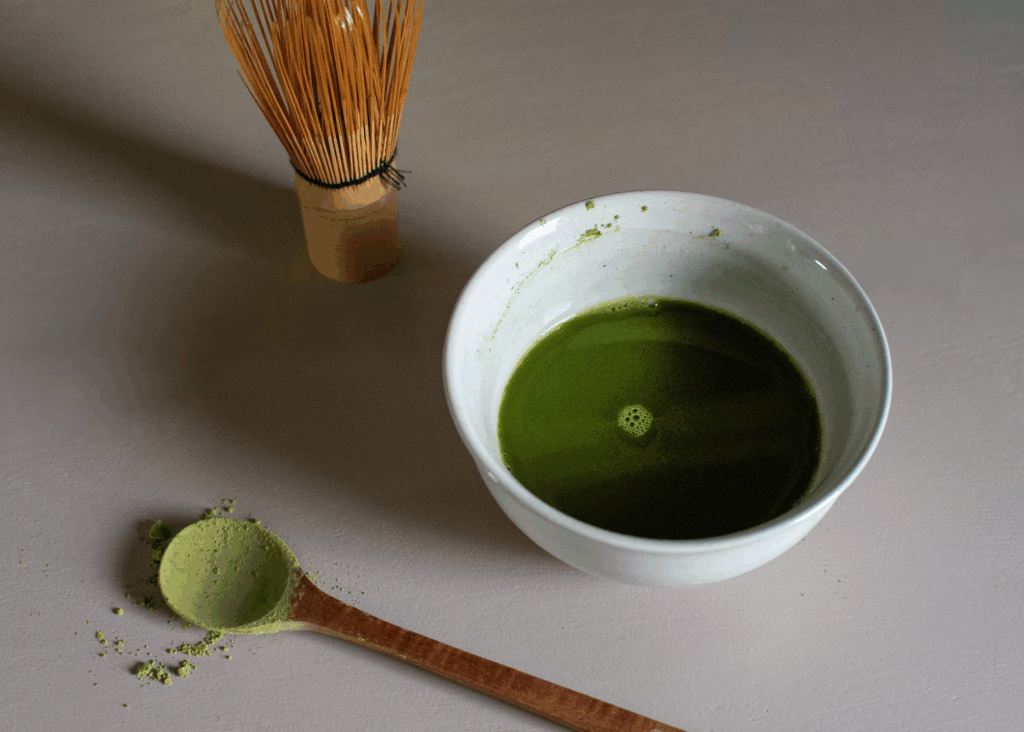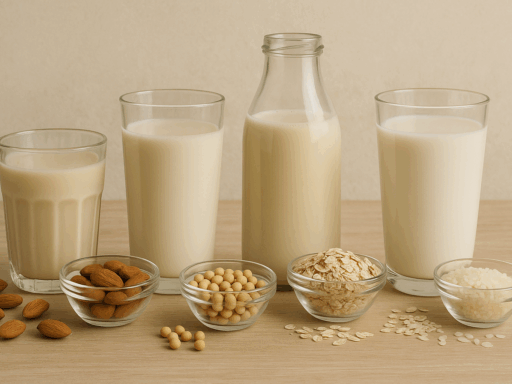As the world becomes increasingly aware of the health and environmental consequences associated with traditional coffee consumption, many people are exploring coffee alternatives that provide similar energy-boosting effects without the negative side effects of caffeine. Coffee alternatives offer numerous benefits, ranging from enhanced digestion to reduced anxiety, making them a great option for health-conscious individuals. This guide will explore the best coffee alternatives, their health benefits, how to incorporate them into your daily routine, as well as the industry and consumer challenges associated with these alternatives, supported by insights and statistics.
Coffee is often praised for its stimulating properties, primarily due to its caffeine content. However, overconsumption of caffeine can lead to negative side effects like anxiety, digestive issues, and difficulty sleeping. As a result, coffee alternatives have surged in popularity in recent years. These alternatives to coffee cater to individuals who want to enjoy a hot beverage with similar energy-boosting properties, but without the jitters or the dependency on caffeine.
Many of these substitutes use natural ingredients like herbs, mushrooms, and grains, each offering unique benefits. Some are also caffeine-free, making them ideal for those looking to reduce their caffeine intake or eliminate it altogether.
Top Coffee Alternatives for Health-Conscious Individuals

Mushroom Coffee
Mushroom coffee has become one of the most popular coffee alternatives, and for good reason. Made with medicinal mushrooms like Lion’s Mane, Chaga, and Reishi, this beverage offers cognitive-enhancing benefits without the jitteriness associated with caffeine. Lion’s Mane, in particular, is known for improving focus, memory, and overall brain function. Additionally, mushrooms like Chaga and Reishi help to boost the immune system and provide anti-inflammatory effects. The global market for mushroom coffee is expected to grow significantly, as consumer interest in adaptogens and nootropic beverages rises.
- Benefits: Enhanced focus, immune support, reduced anxiety
- Key Ingredients: Lion’s Mane, Reishi, Chaga
- Taste: Earthy, slightly bitter, similar to regular coffee
Challenges in Adopting Mushroom Coffee:
- Taste Preferences: Mushroom coffee has a distinct earthy, somewhat bitter taste, which may not appeal to all coffee drinkers.
- Higher Cost: Mushroom coffee can be more expensive than regular coffee, which can deter budget-conscious consumers.
- Market Availability: While it’s growing, mushroom coffee is still a niche product and may not be readily available everywhere.
Sustainability: Mushroom cultivation has a lower environmental impact compared to traditional coffee farming. Mushrooms can be grown on organic waste materials, promoting a more sustainable farming practice. Additionally, some companies use eco-friendly packaging to minimize waste.
Applications: Beyond beverages, mushroom extracts are increasingly used in supplements, wellness products, and food ingredients. They are also being incorporated into energy bars and smoothies.

Matcha Green Tea
Matcha is a type of powdered green tea that is rich in antioxidants and provides a more stable and sustained energy boost compared to coffee. While matcha contains caffeine, it also contains L-theanine, an amino acid that helps promote relaxation and mental clarity. The unique combination of caffeine and L-theanine in matcha provides a more balanced energy lift, without the rapid crash that often follows coffee consumption. The global market for matcha was valued at approximately USD 4.5 billion in 2020 and is expected to expand at a compound annual growth rate (CAGR) of 8.1% from 2021 to 2028 (source).
- Benefits: Sustained energy, improved focus, detoxification
- Key Ingredients: Matcha green tea powder
- Taste: Smooth, slightly grassy, mildly sweet
Challenges in Adopting Matcha:
- Taste: The flavor of matcha can be off-putting for some consumers. Its earthy, grassy taste may not be as enjoyable for people accustomed to the rich bitterness of coffee.
- Caffeine Sensitivity: While matcha offers a more balanced energy boost, those who are highly sensitive to caffeine may still experience unwanted side effects like jitteriness or increased heart rate.
- Preparation Complexity: Matcha requires special preparation, often using a whisk or matcha-making tools, which could be inconvenient for individuals accustomed to the simplicity of brewing a cup of coffee.
Sustainability: Matcha has a lower carbon footprint compared to traditional coffee cultivation, especially when sourced from organic farms. However, the environmental impact can vary depending on the farming practices used. Sourcing matcha from sustainable, organic farms helps mitigate pesticide use and water consumption.
Applications: Matcha is used not only in drinks but also in a variety of foods such as desserts (e.g., matcha-flavored ice cream), smoothies, and protein bars. It is also used in beauty products due to its antioxidant properties.

Chicory Coffee
Made from the roasted root of the chicory plant, chicory coffee is a caffeine-free alternative that mimics the flavor of traditional coffee. It has a robust, dark flavor, which is why it’s often used as a coffee substitute in Southern parts of the United States and New Orleans. Chicory root is high in inulin, a prebiotic fiber that supports digestive health and gut microbiota. With consumers becoming more health-conscious, the chicory market is seeing a rise as people seek healthier, caffeine-free options.
- Benefits: Improved digestion, anti-inflammatory properties, caffeine-free
- Key Ingredients: Roasted chicory root
- Taste: Bold, nutty, slightly woody
Challenges in Adopting Chicory Coffee:
- Taste Adjustment: Chicory coffee has a distinctive flavor that mimics coffee, but it may not satisfy all coffee drinkers, especially those who prefer coffee’s acidity and bitterness.
- Digestive Issues: While inulin is beneficial for gut health, it may cause bloating or gas in some individuals when consumed in large amounts.
- Limited Availability: Although popular in some regions, chicory coffee is still relatively niche, and may not be readily available in all supermarkets or coffee shops.
Sustainability: Chicory is a hardy, drought-resistant plant that requires minimal water, making it an environmentally friendly crop. Additionally, it can grow in various climates, which makes it suitable for cultivation in regions where coffee farming may not be viable.
Applications: Chicory is used in coffee substitutes, and it is also used as a food ingredient in various cultures, particularly in the South of the U.S. It is also present in dietary supplements due to its high fiber content.

Herbal Teas
Herbal teas, such as peppermint, rooibos, and ginger tea, are excellent coffee alternatives. These teas are naturally caffeine-free and offer a variety of health benefits depending on the herbs used. For example, peppermint tea is known for its ability to soothe digestive issues and provide mental clarity, while rooibos is packed with antioxidants that support heart health. The herbal tea market, valued at USD 2.2 billion in 2021, is growing at a CAGR of 5.8%, driven by increasing consumer demand for healthy, caffeine-free beverages (source).
- Benefits: Relaxation, digestive support, immune system boost
- Key Ingredients: Peppermint, rooibos, ginger, chamomile
- Taste: Ranges from herbal, floral, to spicy
Challenges in Adopting Herbal Teas:
- Lack of Energy Boost: While herbal teas provide many health benefits, they lack the same stimulating effects as coffee or caffeine-rich alternatives like matcha. For individuals seeking an energy lift, herbal teas may fall short.
- Taste Preferences: Not everyone enjoys herbal flavors. For those used to the bold bitterness of coffee, the delicate, often floral notes of herbal teas may not be satisfying.
- Acquired Taste: Some herbal teas, like rooibos and chamomile, can have a mild or bland taste, which might require time and patience to develop a liking for.
Sustainability: Herbal teas, especially those sourced from organic farms, have a low environmental impact. Since these plants typically require less water than coffee crops, they are a sustainable choice. Furthermore, herbal tea companies are increasingly turning to biodegradable packaging to reduce plastic waste.
Applications: Herbal teas are versatile and can be used in food recipes, beauty products, and supplements. They are commonly consumed for relaxation, stress relief, and digestive health.

Golden Milk (Turmeric Latte)
Golden milk, made with turmeric, ginger, and non-dairy milk, is a warming, caffeine-free drink that’s gaining popularity as a coffee alternative. Turmeric is known for its powerful anti-inflammatory properties and can help promote joint health, reduce stress, and support digestion. Paired with black pepper, which enhances the absorption of curcumin (the active compound in turmeric), golden milk is both flavorful and beneficial for overall well-being. As awareness of anti-inflammatory diets grows, the market for turmeric-based beverages has seen significant growth.
- Benefits: Anti-inflammatory, digestive health, improved sleep
- Key Ingredients: Turmeric, ginger, black pepper, non-dairy milk (almond or oat milk)
- Taste: Spicy, warm, slightly sweet
Challenges in Adopting Golden Milk:
- Taste Preferences: Golden milk has a distinctive flavor, combining spicy turmeric with creamy milk and pepper. While many enjoy it, others may find the taste too pungent or overpowering.
- Time-Consuming Preparation: Making golden milk can be a bit more involved than brewing a cup of coffee. It requires adding multiple ingredients and heating them together, which could be a deterrent for busy consumers.
- Potential Allergens: Since golden milk is often made with non-dairy milks, it may not be suitable for individuals with allergies to certain plant-based milk (e.g., almonds or oats).
Sustainability: The ingredients in golden milk are generally sourced from sustainable farming practices, particularly when plant-based milks and organic spices like turmeric and ginger are used. However, the environmental impact can vary depending on the source of each ingredient.
Applications: Golden milk is gaining popularity not only as a beverage but also as a health supplement due to its anti-inflammatory properties. It is increasingly being incorporated into recipes for health-conscious consumers.

Yerba Mate
Yerba mate is a traditional South American drink made from the leaves of the Ilex paraguariensis plant. It contains caffeine but provides a smoother energy boost due to the presence of theobromine, the stimulant found in chocolate. Yerba mate also offers a rich source of vitamins, minerals, and antioxidants. The yerba mate market is expected to grow due to the increasing consumer demand for plant-based energy beverages.
- Benefits: Boosts energy and mental clarity, rich in antioxidants
- Key Ingredients: Yerba mate leaves
- Taste: Earthy, slightly bitter, herbaceous
Challenges in Adopting Yerba Mate:
- Acquired Taste: Yerba mate has a strong, earthy taste that can be difficult for new drinkers to enjoy, especially those accustomed to coffee’s bitterness.
- Caffeine Sensitivity: Despite offering a smoother caffeine experience, some individuals may still experience jitteriness or other side effects associated with caffeine consumption.
- Cultural Barriers: Yerba mate is still considered an exotic beverage outside South America. Some consumers may be hesitant to try it due to unfamiliarity with the tradition and preparation methods.
Sustainability: Yerba mate farming is generally more sustainable than traditional coffee production, as it requires less water and uses less chemical fertilizer. Many yerba mate producers are also incorporating fair trade practices to ensure that their products are ethically sourced.
Applications: Yerba mate is used in beverages, energy drinks, and wellness supplements. Its antioxidant properties make it popular for use in products aimed at boosting metabolism and providing energy.
Industry Challenges in the Coffee Alternative Market
While the market for coffee alternatives is expanding, several challenges persist:
- Consumer Awareness and Education: Despite growing demand, many consumers are still unfamiliar with options like mushroom coffee or yerba mate. According to a report by Mintel, 45% of coffee drinkers stated that they would consider reducing their coffee intake if they had a better understanding of the health benefits of coffee alternatives (source).
- Taste Preferences and Habitual Consumption: Coffee drinkers often have deeply ingrained taste preferences. A survey by Statista revealed that 71% of U.S. consumers drink coffee daily, making it difficult for some to embrace coffee alternatives (source).
- Market Competition: The coffee alternative market is highly competitive, with numerous brands offering similar products. Differentiating through quality, taste, and branding is essential for success in this rapidly growing space.
- Supply Chain and Sourcing: Ingredients for certain coffee alternatives, like mushrooms or matcha, are often sourced from specific regions, leading to potential supply chain disruptions. These disruptions can result in higher prices and limited product availability.
- Price Sensitivity: Many coffee alternatives can be more expensive than traditional coffee, which could deter consumers who are price-sensitive. This price gap remains one of the most significant barriers to widespread adoption.
Coffee alternatives provide an excellent way to enjoy a hot beverage with energy-boosting properties without relying on caffeine. Whether you’re looking for a calming herbal tea, a cognitive-enhancing mushroom coffee, or a rich and flavorful chicory drink, there is an alternative out there for every taste and health goal. However, both industry and consumer challenges must be addressed to ensure broader adoption and sustainability. By exploring these alternatives, you can reduce your caffeine intake while still enjoying the ritual of a warm, comforting beverage that supports your well-being.






